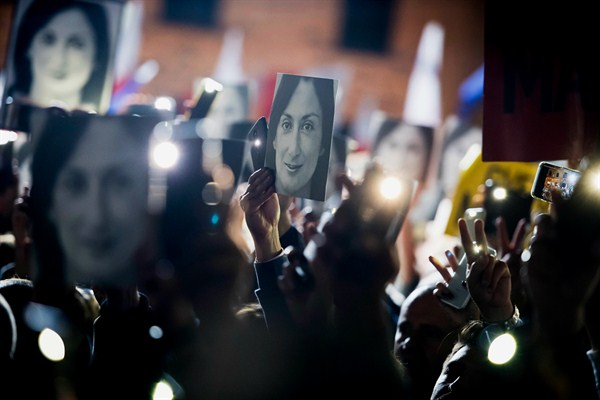Investigative journalist Daphne Caruana Galizia spent her career cataloguing what she believed to be endemic corruption among the political elite in Malta, the European Union’s smallest member state. When she was murdered in a car bomb in October 2017, it was, in the words of one of her three sons, “an assassination to match the scale of the crimes on which she was reporting.”
Now, more than two years later, Prime Minister Joseph Muscat is set to resign amid growing concerns over his handling of Caruana Galizia’s murder investigation. Partly due to a long delay by Maltese authorities, evidence has just recently begun to emerge implicating senior members of Muscat’s government in her death. It has cast a harsh light on Malta’s role as a murky offshore financial center, while exposing systemic vulnerabilities to corruption and other financial misdeeds across the EU.
Caruana Galizia focused the final months of her career on probing leaks contained in the so-called Panama Papers, which revealed that two high-ranking Maltese government officials, Keith Schembri and Konrad Mizzi, both owned Panamanian shell companies. Schembri, who served as Muscat’s chief of staff until resigning last November, has been accused of using his company to launder suspicious payments he received from wealthy Russians. According to an email from 2015 that was obtained by Maltese regulators, companies owned by Schembri and Mizzi, a former energy minister in Muscat’s Cabinet, were also expecting large payments from a mysterious Dubai-based firm named 17 Black. Caruana Galizia hinted in a blog post published shortly before her murder that she was investigating 17 Black.

